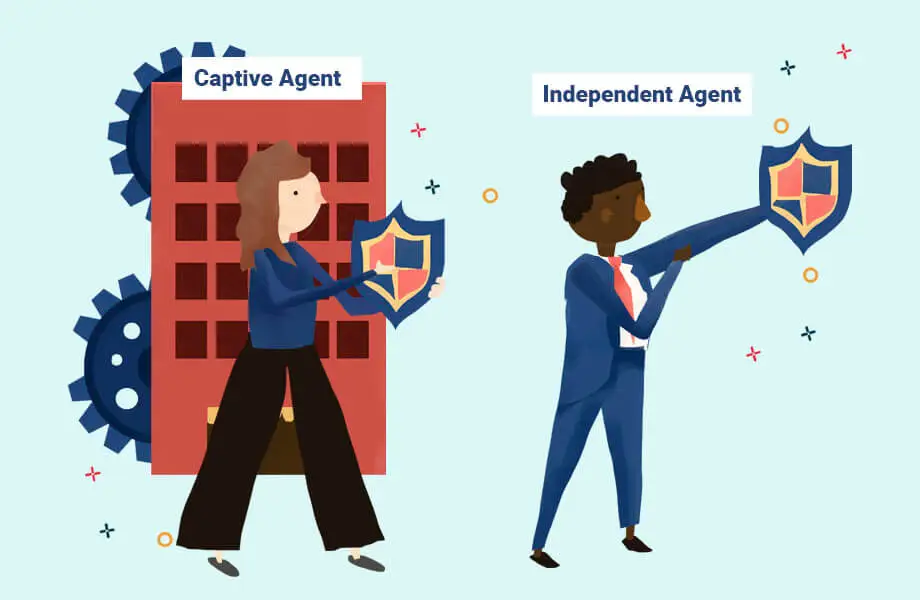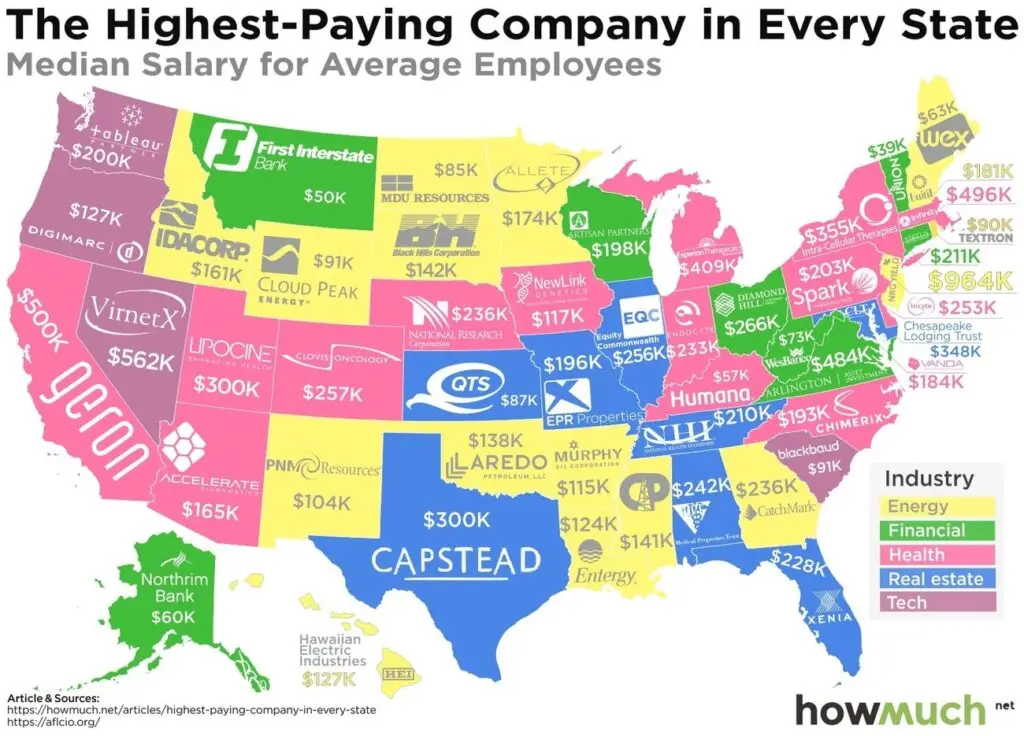Now Reading: How Much Do Insurance Agents Make in 2025? Real Salary Data Revealed
-
01
How Much Do Insurance Agents Make in 2025? Real Salary Data Revealed
How Much Do Insurance Agents Make in 2025? Real Salary Data Revealed

Insurance agents can earn between $27,142 to $208,543 per year, which shows the incredible range of possibilities in this career. The average total pay comes to $146,553 per year, and agents can boost their base salary with commissions, bonuses, and profit sharing that adds another $43,000 to $81,000.
Independent agents tend to make more money through commissions than captive agents, with new policy rates going up to 15%. Your location plays one of the most important roles in determining your salary. Take Las Vegas for example, where insurance agents make around $84,481 yearly.
Let’s dive into the actual salary numbers for insurance agents in 2025. We’ll look at what drives earning potential, where the best-paying jobs are, and how different types of insurance specialties can affect your income.
Average Insurance Agent Salary in 2025
The latest data from 2025 shows insurance agents are earning much more than before. Indeed reports that insurance agents now make $75,235 per year nationwide as of April 2025.[1] This number comes from 44,400 reported salaries, which gives us a reliable picture of the current market.
National salary range and median pay
Insurance agent salaries vary greatly across the country. You can earn anywhere from $27,142 to $208,543.[1] These numbers show the high earning potential in this field based on your experience, location, and specialty area.
The Bureau of Labor Statistics (BLS) offers a more conservative estimate. Their data shows the median annual wage for insurance sales agents at $60,370 as of May 2024 [2]. Half of all agents earn above this amount, while the other half earn less.
Salary.com‘s data puts the average annual insurance agent salary at $56,882.[2] Most professionals earn between $47,460 and $70,796, though BLS and Indeed provide more reliable figures.
Licensed insurance agents specifically earn an average of $71,292 as of October 2024.[3] The BLS data shows that entry-level agents make at least $34,940, while top performers earn more than $134,420 [3].
The career path looks even more promising, as the Bureau of Labor Statistics suggests that driven insurance agents can earn more than $100,000 in their first year.[3] This makes it an attractive option for people with strong sales skills.
Hourly, weekly, and monthly breakdowns
The Bureau of Labor Statistics reports that insurance agents earn $29.02 per hour on average [2]. Salary.com‘s figure comes in slightly lower at $27.00 per hour [2].
Life insurance agents tend to earn more. The national average sits at $38.33 per hour, with most agents making between $24.04 (25th percentile) and $47.84 (75th percentile) [3].
Weekly earnings average $1,094 based on annual salary calculations [2]. This adds up to $4,740 monthly before taxes and deductions [2].
New licensed insurance agents typically start at $40,232 to $41,000 annually [3], earning $774 to $788 weekly. Experienced agents can make between $61,993 and $63,000 per year [3], taking home $1,192 to $1,211 weekly.
Health insurance agents earn $40,052 on average nationwide [3]. Hourly rates start at $16.00 for newcomers and reach $31.00 for seasoned professionals [3].
Your income potential grows as you build your client base and expertise. Insurance sales offers many paths to increase your earnings across different specializations and experience levels.
How Pay Varies by Agent Type

Image Source: Hourly.io
The choice between working as a captive or independent agent plays a huge role in an insurance agent’s earnings. These two business models create different earning structures that can change annual income by tens of thousands of dollars.
Independent vs. captive agents
Captive agents work exclusively for one insurance company under a carrier contract. They receive a regular salary plus commission on policies sold.[4] In 2023, the average captive agent earned $93,821 annually as base salary and $27,574 in bonuses and commissions [5].
Independent agents partner with multiple insurance companies and can offer more products from different carriers. They earn a higher average salary of $117,895 ($80,715 base pay and $37,181 in commissions and bonuses) [5]. However, they must cover their own business expenses, such as
- Office space and supplies
- Marketing and advertising
- Staff salaries
Commission rates show a clear difference. Captive agents earn 5% to 10% commission on new auto and home insurance policies. Independent agents can make up to 15% [6] [7]. The higher earning potential comes with added responsibilities and business risks.
Commission-only vs. base salary models
Insurance agents work under three main compensation structures. Each has its own benefits and challenges:
1. Straight Commission Model
An agent’s earnings depend on sales performance – more policies mean higher income [8]. Life insurance agents can earn front-loaded commissions between 40% to 115% of first-year premiums [6] [9]. These rates usually drop to 1-2% for renewals.
2. Base Salary Plus Commission
This model combines fixed salary with performance-based commission. Agents get steady income plus extra money from sales [8]. Many captive agents prefer this structure as it provides regular paychecks along with commission payments [9].
3. Tiered Compensation Models
Agencies use complex tier-based structures for different sales scenarios and agent skills [8]. These models reward performance through multiple layers based on sales volume, client retention, and other metrics.
Renewal commissions range from 2% to 15% for all agent types, but most fall between 2% and 5% [10]. Life insurance agents might stop getting commissions after the third year [6].
Agency size matters too. Large agencies ($3 million+ revenue) pay producers an average of $219,980 [11]. Small agencies (under $500,000 revenue) offer just $29,512 [11].
Your choice between captive and independent roles – and the compensation model that comes with it – will shape both your earning potential and business duties. This makes understanding these structures crucial before starting an insurance career.
Top Paying Locations for Insurance Agents

Image Source: Reddit
Location makes a huge difference in how much insurance agents earn. Some cities and states pay almost double what others do, and these geographic differences create big variations in earning potential.
Highest paying cities in the U.S.
Several metropolitan areas stand out when it comes to the best insurance agent salaries. Recent data shows New York-Newark-Jersey City tops the list with an impressive annual mean wage of $110,070 [2]. This is a big deal, as it means that the national median.
Chicago-Naperville-Elgin ranks second in insurance agent earnings, where agents make about $116,710 annually [2]. Atlanta comes in third with agents taking home around $107,180 per year [2].
Agents looking beyond major markets might be surprised by what mid-sized cities pay. U.S. News & Money reports specialized markets like Utica, New York, offer amazing earnings at $143,880 [12]. Watertown, New York, pays $128,520 [12] – both cities pay more than the biggest metropolitan areas.
Here’s what other notable cities pay:
- Fort Lauderdale, FL: $79,455 [1]
- Austin, TX: $76,291 [1]
- Las Vegas, NV: $84,481 [1]
- Dallas, TX: $75,101 [1]
Birmingham stands out with 73% more insurance agent jobs than typical American cities and offers salaries of $95,630 [13].
States with the best earning potential
New York leads the country with average annual insurance agent salaries of $108,960 [2]. New Jersey comes in second at $106,910 [2], and Illinois takes third place at $105,150 [2].
Minnesota ($100,750) [2] and Massachusetts ($100,590) [2] round out the top five highest-paying states according to Bureau of Labor Statistics data. These states offer solid growth prospects for insurance agents.
Hawaii proves size doesn’t matter. Despite its smaller market, Hawaiian agents earn an average of $74,219 [14], making it one of the nation’s top-paying states for insurance sales.
Several key factors drive these geographic salary differences:
- Regional cost of living
- Local competition levels
- Insurance product demand
- Each location’s main industries
The future looks bright for insurance agents. Job growth projections show a 6% increase from 2023 to 2033 [15], beating the average across all jobs. This means about 47,100 openings each year [15], suggesting strong demand whatever the location.
The best-paying locations are clear, but agents should think about cost of living, market competition, and their priorities when choosing where to work.
Industry and Specialization Impact on Salary
Your choice of insurance specialty and industry can make a huge difference in your earnings as an agent. Some sectors pay much more than others, so choosing the right specialization is a smart way to boost your income.
Best-paying industries for insurance agents
Insurance professionals who serve niche markets earn impressive salaries in some unexpected industries. Agents in management, scientific, and technical consulting services earn $148,460 annually [2], making this the highest-paying sector. Computer Systems Design comes next at $108,980 [2], which creates great opportunities for agents with technical knowledge.
Agents who target specific industries instead of general consumer markets see their income grow quickly. Here are some other high-paying sectors:
- Agriculture: $129,861 median total pay [3]
- Pharmaceutical & Biotechnology: $112,862 median total pay [3]
- Real Estate: $98,843 median total pay [3]
- Transportation & Logistics: $84,758 median total pay [3]
These premium salaries reflect the complex insurance needs these industries have, which require specialized knowledge to assess and manage risks properly.
How specialization (life, auto, health) affects income
The type of insurance products you sell can really change your earning potential. Life insurance agents typically earn between $62,000 and $76,000 annually [16]. Experienced professionals often earn six figures thanks to favorable commission structures.
Commission rates explain why agents choose certain specialties:
Life insurance offers the highest commissions—40% to 115% of first-year premiums [16], especially for whole life policies. These rates then drop to 1-2% for renewals [16].
Health insurance specialists earn between $40,000 and $75,000 annually [17], with commission rates ranging from 5% to 10% of first-year premiums.[18] Health policies provide steadier recurring income since plans need annual renewal.
Auto and home insurance agents earn between $43,000 and $60,000 [19]. They see lower commission rates but get more frequent policies and renewals.
Agents who focus on commercial insurance and serve businesses rather than individuals often earn the most. Commercial policies that cover general liability, professional liability, and commercial property bring in higher premiums and bigger commissions.
What Influences an Agent’s Earning Potential
Several personal factors influence how much insurance agents make beyond their location and specialization. The industry rewards persistence, relationship-building, and business sense. Motivated professionals can increase their earnings throughout their careers.
Experience and career level
Career progression greatly affects insurance agent earnings. First-year agents start with modest pay while they build their book of business. Senior agents earn nearly double what beginners make as they gain experience.
Insurance sales has a steep but rewarding learning curve. New agents focus on prospecting and simple sales. Veteran agents move up to more complex products with higher commission values. Past sales continue to generate income for years through renewal commissions.
Sales volume and client base
Sales performance drives insurance agent income. Top agents who exceed sales targets open up bonus opportunities. Advanced commission structures and performance incentives can turn average salaries into exceptional earnings.
An agent’s client base quality matters as much as quantity. Agents who serve high-net-worth individuals or businesses earn more per sale than those focusing on basic coverage for average consumers. Each client’s lifetime value grows when agents become skilled at cross-selling additional policies.
Company size and reputation
The organization an agent works for affects their earning potential. Large, prominent carriers provide better training, marketing support, and brand recognition. These factors help agents close more sales. Notwithstanding that, smaller agencies often offer bigger commission splits to attract talent.
Insurance companies with strong financial ratings command higher premiums for equivalent coverage. This directly increases agent commissions. On top of that, respected carriers have better customer retention rates. This helps agents keep their valuable renewal commissions longer.
You need to pay attention to all these factors to realize your full potential as an insurance agent. Build experience step by step, focus on high-value sales opportunities, and work with respected carriers that match your sales approach.
Conclusion
Personal drive and strategic choices largely determine an insurance agent’s success. Entry-level agents start around $40,000 per year, while experienced professionals often earn well over $100,000 by making smart choices about their specialty and location.
Commission rates run higher for independent agents compared to captive agents, but this comes with added business responsibilities. Qualified professionals in specialized sectors like management and technical consulting services can reach exceptional earnings of $148,460 annually.
The data shows a clear path to higher earnings: target growing markets, develop expertise in profitable specialties, and focus on high-value clients. Substantial income growth awaits agents who blend these elements with strong sales skills and excellent customer service.
Your earning potential varies substantially based on location. Major cities like New York and Chicago offer salaries above $110,000. Smaller markets can be surprisingly lucrative – take Utica, NY, which tops the charts at $143,880. Smart career decisions should balance market chances with living costs.
Check This Also: Tesla Insurance in California: I Saved $2,400 in 2025 (Real Test Results)
FAQs
Q1. What is the average salary for insurance agents in 2025? The average insurance agent salary in 2025 is $75,235 per year, with a range from $27,142 to $208,543 depending on factors like experience, location, and specialization.
Q2. How does pay differ between independent and captive insurance agents? Independent agents typically earn higher commissions, with an average salary of $117,895 compared to $93,821 for captive agents. However, independent agents are responsible for their own business expenses.
Q3. Which cities offer the highest salaries for insurance agents? Top-paying cities include New York-Newark-Jersey City ($110,070), Chicago-Naperville-Elgin ($116,710), and Atlanta ($107,180). Smaller cities like Utica, NY, also offer competitive salaries at $143,880.
Q4. How does specialization affect an insurance agent’s income? Specialization can significantly impact earnings. Life insurance agents can earn between $62,000 and $76,000 annually, with experienced professionals often exceeding six figures. Commercial insurance specialists typically achieve the highest overall earnings.
Q5. Can insurance agents make over $100,000 a year? Yes, ambitious insurance agents can potentially earn more than $100,000 in their first year, especially those with strong sales abilities. Experienced agents, particularly those specializing in commercial or life insurance, often surpass this income level.



